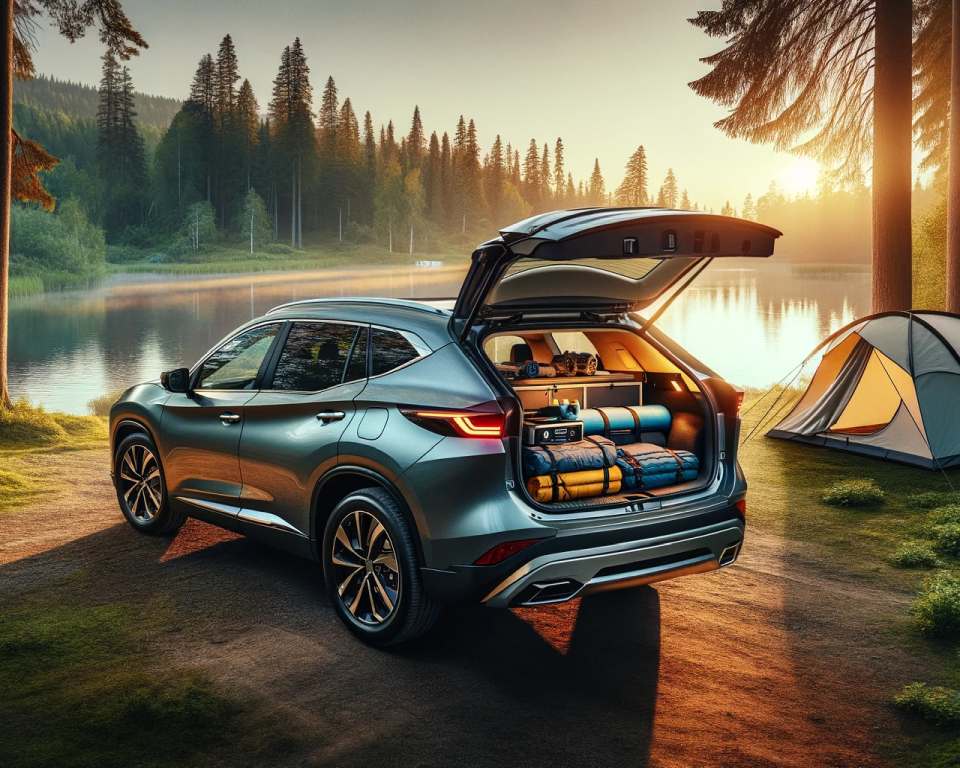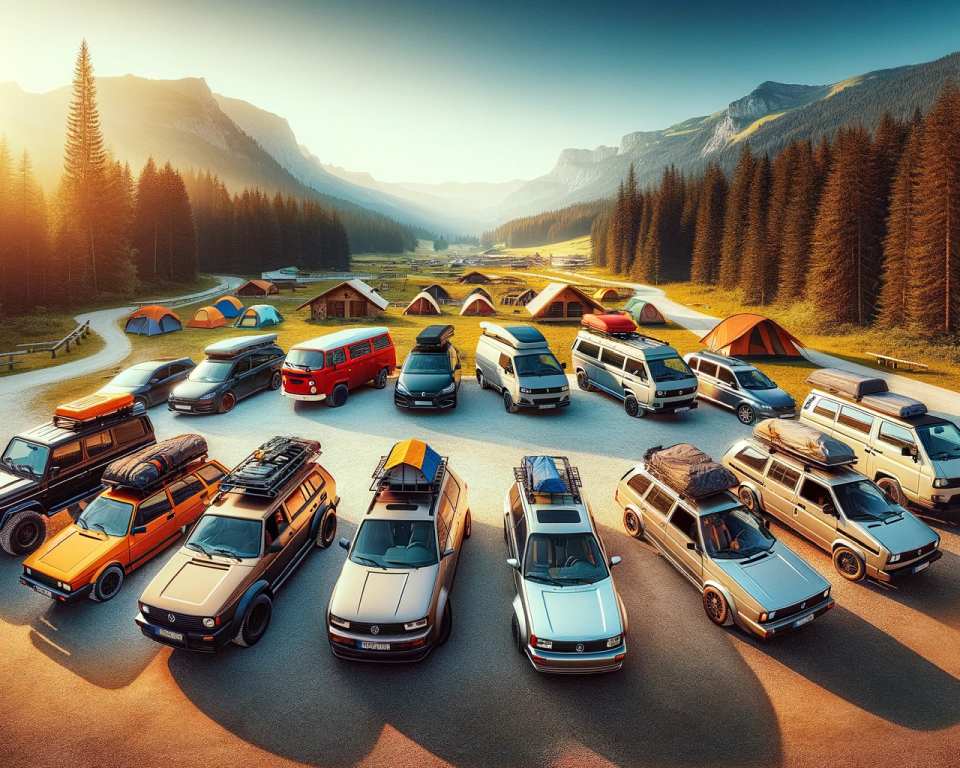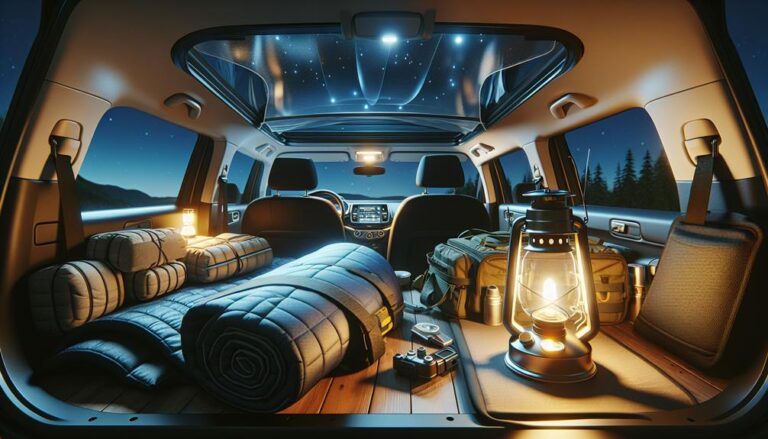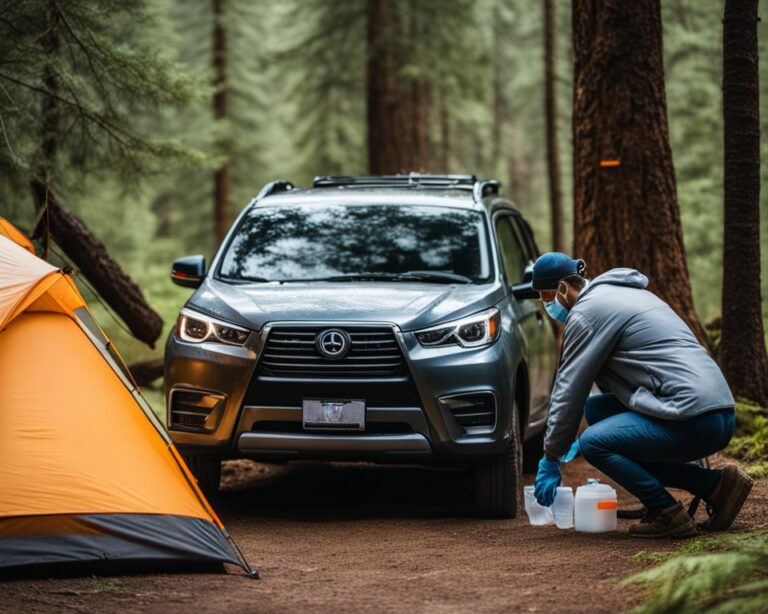Selecting the Best Vehicle for Car Camping: Key Considerations
Car camping has become increasingly popular, and choosing the right vehicle is crucial for a comfortable and convenient outdoor experience. We understand that finding the best vehicle for car camping can be overwhelming with the multitude of options available. That’s why we have compiled a list of key considerations to help you make an informed decision and ensure you have the perfect camping companion.
When it comes to car camping, storage capacity is paramount. You’ll need enough space to store all your camping gear, essentials, and any other equipment you plan to bring along. From tents and sleeping bags to cooking utensils and coolers, having ample storage space is essential for a stress-free camping experience. Additionally, consider the ease of access to your stored items during the trip for convenience.
Another important factor to consider is the AWD/4WD capabilities of the vehicle. If you intend to explore challenging terrains or venture off-road, having a vehicle with AWD or 4WD will provide better traction and control. This feature is particularly important when encountering adverse weather conditions such as rain, snow, or mud, ensuring your safety and comfort during your camping adventures.
Fuel economy is also a crucial consideration, especially if you plan to embark on long-distance road trips. Opting for a car with good gas mileage can save you money on fuel costs and allow you to explore remote areas without worrying about frequent refueling stops. Additionally, considering hybrid or electric camping vehicles can be an eco-friendly choice for reducing your carbon footprint.
When it comes to camping vehicles, payload and towing capacity are essential factors to evaluate. Understanding the maximum weight your vehicle can carry or tow ensures you can bring all the necessary equipment and gear for your camping trips, including bikes, kayaks, or trailers. These capacities also play a role in your safety, as exceeding the weight limits can lead to dangerous handling and decreased performance.
Comfort is paramount during your car camping trips, and the suspension of your vehicle plays a significant role in ensuring a smooth ride. While stock suspension is generally suitable for paved roads and standard camping trips, upgrading to a more robust suspension system can significantly improve your comfort, especially when tackling rough terrains or fully loaded with camping gear.
Navigating obstacles during your car camping adventures becomes more manageable with sufficient ground clearance. A vehicle with higher ground clearance allows you to traverse uneven terrains, rocky trails, or muddy paths with ease. Consider the type of terrain you’ll be encountering and ensure your vehicle has the appropriate clearance to avoid scraping or damaging the undercarriage.
With these key considerations in mind, you’re now equipped to select the best vehicle for your car camping needs. Whether you prefer the spaciousness of an SUV, the versatility of a truck, or the convenience of a van, there are numerous camping vehicle options available to suit your preferences. Take the time to research and test drive various models, paying attention to their features, reviews, and overall suitability for your camping adventures. Don’t forget to invest in car camping accessories that enhance your experience and make camping more enjoyable.
Remember, the right vehicle can be the difference between a memorable and comfortable car camping trip and a frustrating experience. So choose wisely, pack your camping gear, and hit the road for unforgettable outdoor escapades.
Types of Cars That Can Be Used as a Camper
When it comes to car camping, you’ll find that practically any vehicle can be transformed into a camper. However, some vehicles are better suited to this purpose than others. Factors such as size, storage capacity, and sleeping arrangements should be considered when selecting a vehicle for car camping.
Larger vehicles like trucks, SUVs, crossovers, and vans are popular choices for car camping due to their ample storage space. They can accommodate camping gear, supplies, and even support extended trips. Additionally, vehicles with seats that fold flat or stow away offer the advantage of maximizing space, making them ideal for sleeping inside.
While trucks, SUVs, crossovers, and vans are widely used for car camping, it’s worth noting that there are exceptions. Some wagons and vehicles in other categories can also meet the needs of car campers. The key is to prioritize ample storage capacity and sleeping arrangements that suit your requirements and preferences.
Storage Capacity: Pack it All In
When it comes to car camping, having ample storage capacity in your vehicle is key. The more space you have, the more camping gear and equipment you can bring along for your outdoor adventures. Whether it’s packing your camping essentials, or including additional recreational equipment such as bikes, surfboards, skis, or hunting gear, having enough room in your vehicle is essential for a comfortable and well-equipped trip.
One important factor to consider when choosing a car for camping is the storage capacity it offers. Vehicles that have seats that fold flat or stow away provide you with extra space for sleeping pads or mattresses, maximizing both comfort and storage. Additionally, utilizing roof racks and cargo systems can help you make the most of your storage capacity and keep your camping gear organized.
When packing for car camping, it’s helpful to create a system for organizing your gear. Consider using storage bins or bags to keep things tidy and easily accessible. Labeling your storage containers can also save you time and effort when searching for specific items.
Pro Tip: Use clear plastic bins with lids to store your camping gear. This will not only keep everything organized, but also protect your gear from dust and moisture.
Don’t forget to make use of all available space in your vehicle. Utilize the nooks and crannies, such as the space under the seats or in the footwells, to store smaller items or things you need quick access to.

Having a well-organized and efficient storage system in your camping vehicle can make a significant difference in your overall camping experience. Not only will it allow you to bring all the necessary gear and equipment, but it will also ensure that everything is easily accessible when you need it. So, before you hit the road for your next camping adventure, take the time to plan your storage strategy and make the most of your vehicle’s cargo space.
AWD/4WD: Traction and Control
When it comes to car camping in challenging terrain, having an AWD (all-wheel drive) or 4WD (four-wheel drive) vehicle is crucial. These systems provide enhanced traction, control, and stability, ensuring a safer and more enjoyable camping experience, even in adverse weather conditions like rain, snow, or muddy trails.
While AWD and 4WD are not identical, both distribute power to all four wheels, improving grip on challenging and loose terrain. This capability allows you to confidently explore off-road camping destinations that might otherwise be inaccessible with a standard two-wheel drive vehicle.
With AWD or 4WD, you can tackle steep inclines, navigate through rocky paths, and conquer unpaved roads. These systems excel at providing traction on uneven surfaces, helping you maintain control and avoid getting stuck.
Whether you’re looking to camp in the mountains, remote trails, or any other rugged terrain, an AWD or 4WD vehicle opens up a world of possibilities. It allows you to venture further from established campgrounds and provides the freedom to find the perfect campsite in the midst of nature.
When planning your car camping adventure, consider renting or buying an AWD or 4WD vehicle specifically designed for off-road camping. These vehicles are equipped with features and capabilities that make them better suited for the challenges of camping in challenging terrain.
Remember, safety should always be a top priority. Before embarking on any off-road or challenging terrain camping trip, ensure that you are familiar with your vehicle’s capabilities and limitations. It’s also important to practice responsible and sustainable camping practices to preserve the natural environment for future generations of outdoor enthusiasts.
Explore the possibilities of AWD/4WD car camping and take your outdoor adventures to the next level with a vehicle that is ready for any terrain.
Fuel Economy: Efficiency on the Road
When it comes to selecting a vehicle for car camping, fuel economy is a crucial consideration. Long-distance driving and the additional weight of camping gear and equipment can significantly affect fuel efficiency. Not only does this impact the environment, but it also affects your wallet, especially when traveling in remote areas with fewer gas stations.
Choosing a car with good gas mileage can help save money on fuel costs during your car camping adventures. Look for vehicles that are known for their fuel efficiency, such as hybrids or electric models. These types of vehicles can offer impressive gas mileage and reduce your reliance on traditional fuel sources.
Hybrid camping vehicles combine an internal combustion engine with an electric motor, allowing for increased fuel efficiency and reduced emissions. These vehicles automatically switch between the electric motor and the engine, optimizing fuel usage based on driving conditions. They are a great option for those looking to reduce their carbon footprint while enjoying the benefits of car camping.
Electric camping vehicles, on the other hand, run solely on electricity and produce zero emissions while driving. They can be charged at home or at public charging stations, offering a more sustainable and environmentally friendly option for car camping. However, it’s important to ensure reliable access to charging stations along your camping route to avoid any potential range anxiety.
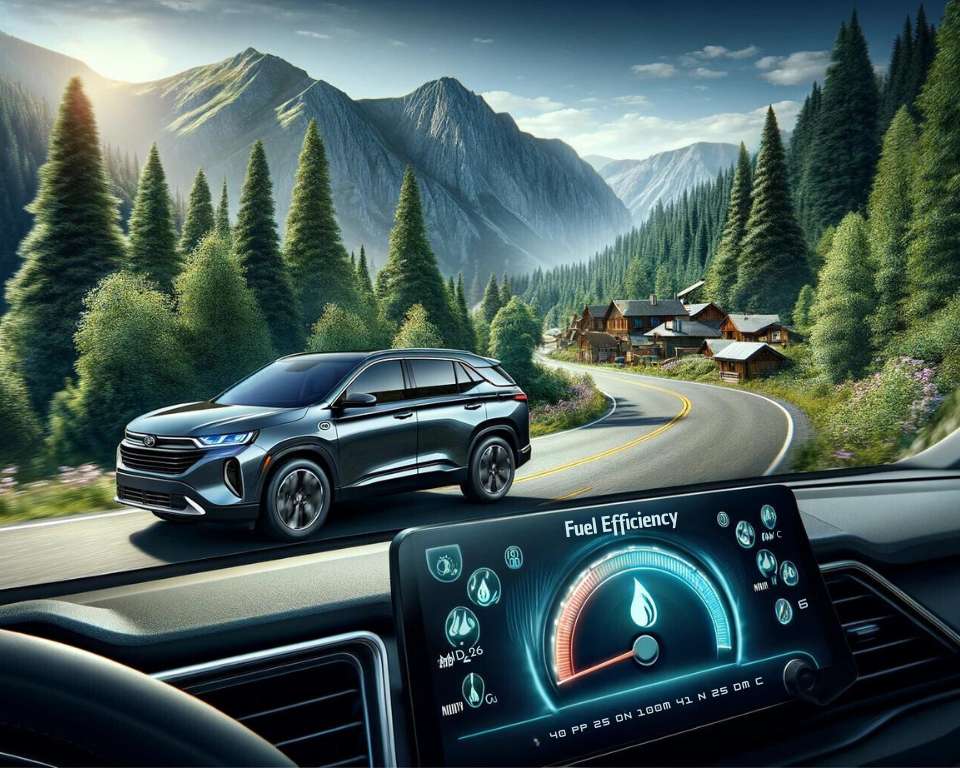
“Choosing a car with good gas mileage can help save money on fuel costs, especially when traveling remote roadways with fewer gas stations.”
Before opting for a hybrid or electric camping vehicle, it’s essential to consider the availability of charging stations in the areas you plan to explore. Insufficient charging infrastructure could limit your camping options or require careful planning to ensure you have access to charging facilities when needed.
By prioritizing fuel efficiency when selecting your car camping vehicle, you can save money on fuel costs, reduce your environmental impact, and enjoy a more sustainable outdoor adventure.
Static and Dynamic Weight: Know Your Limits
When it comes to car camping, understanding the static and dynamic weight limits of your vehicle is crucial for ensuring a safe and enjoyable experience. Whether you’re considering installing a roof top tent (RTT) or adding other rooftop accessories, knowing your vehicle’s weight limits is paramount.
Static weight refers to the maximum weight that your vehicle’s roof can support while it is parked. It’s important to note that this weight includes not only the RTT but also any additional cargo or gear that might be stored on the roof. Exceeding the static weight limit can lead to structural damage and compromise the safety of your camping setup.
Dynamic weight, on the other hand, pertains to the weight that your vehicle’s roof can carry while it is in motion. This weight includes the RTT, any cargo on the roof, and even the weight of the passengers sleeping inside the tent. It’s crucial to consider the total dynamic weight to ensure that your vehicle remains stable and safely maneuverable during your car camping adventures.
One of the most popular rooftop accessories for car camping is a roof top tent. These tents offer a comfortable and elevated camping experience and are designed to be mounted on the roof of your vehicle. However, it’s important to keep in mind the weight restrictions imposed by your vehicle’s manufacturer. Exceeding these weight limits can lead to serious safety hazards, including roof damage, instability, and even accidents.
It’s crucial to consider the combined weight of the roof rack, the RTT, and any passengers sleeping inside the tent.
To ensure the safety and structural integrity of your car camping setup, it’s essential to carefully review your vehicle’s manual or consult with your vehicle manufacturer to determine the recommended static and dynamic weight limits. By respecting these limits, you can have peace of mind knowing that your car camping adventures are both safe and enjoyable.
Having a clear understanding of your vehicle’s static and dynamic weight limits is essential for a safe and secure car camping experience. By respecting these limits and properly distributing the weight on your vehicle, you can embark on your camping adventures with confidence, knowing that you’re prioritizing both your safety and the integrity of your vehicle.
Payload and Towing Capacity: Carrying and Pulling
When it comes to car camping, it’s important to consider both the payload capacity and towing capacity of your vehicle. Understanding these capabilities will ensure you can safely carry all your camping gear and even tow a trailer if needed.
Payload capacity refers to the maximum weight that a vehicle can support, including passengers and cargo. Before you start loading up your car with camping essentials, it’s crucial to know the payload capacity to avoid overloading. Exceeding the payload capacity can lead to decreased stability, reduced braking performance, and potential damage to your vehicle’s suspension and tires.
Towing capacity is the maximum weight that a vehicle can safely tow. If you plan to bring a trailer or camper along on your car camping adventures, it’s essential to consider the towing capacity of your vehicle. Keep in mind that towing capacity can vary depending on the vehicle’s engine, transmission, and other factors.
Before towing a trailer, make sure your vehicle is equipped with the necessary trailer hitch. Some vehicles may require a professional installation, while others may have factory-installed hitches. It’s essential to follow the manufacturer’s guidelines and ensure that the trailer hitch is properly installed for safe towing.
Choosing the Right Trailer
When selecting a trailer, consider its weight and size to ensure it falls within your vehicle’s towing capacity. It’s important to calculate the total weight of the trailer, including the weight of the trailer itself and any cargo you plan to carry inside it. This will help you determine whether your vehicle can safely handle the load.
Remember, towing capacity isn’t just about weight; it’s also about control and stability. Factors such as the trailer’s aerodynamics, trailer tongue weight, and the distribution of weight inside the trailer can all impact your vehicle’s towing performance. It’s essential to adhere to the manufacturer’s guidelines and recommendations for safe towing practices.
Tip: Always double-check your vehicle’s owner’s manual for specific payload and towing capacity information. This will ensure you have accurate and up-to-date data for your vehicle.
By understanding the payload and towing capacity of your car, you can make informed decisions when it comes to packing for your car camping trips and choosing the right trailer. This will help you enjoy a safe and comfortable camping experience, knowing that your vehicle can handle the load.

Suspension: Comfort for the Journey
The suspension system of your vehicle is a crucial component that provides comfort and stability during your car camping adventures. When it comes to car camping, stock suspension is generally sufficient for weekend trips on paved roads or to state and national parks. However, if you have plans to venture off-road or explore more rugged terrains, upgrading your suspension might be necessary.
When your vehicle is fully loaded with camping gear, a more robust suspension will ensure a smoother ride. An upgraded suspension system can absorb the impact of rough terrains, providing better control and stability. This is especially important when you encounter uneven surfaces, potholes, or obstacles on your camping journey.
Assess your car camping plans and consider the type of driving you’ll be doing. If you anticipate traveling on rough terrains, such as dirt roads, rocky trails, or sandy beaches, investing in an off-road camping suspension can greatly enhance your camping experience. Upgraded suspension provides better ground clearance, ensuring that your vehicle is capable of navigating challenging terrains without scraping the undercarriage.
Upgrading your suspension for car camping can also improve the longevity of your vehicle. By providing better absorption of shock and impact, a robust suspension system reduces wear and tear on other components, such as your tires and chassis.
Benefits of Upgrading Your Suspension for Car Camping:
- Improved ride comfort and stability on rough terrains
- Enhanced control and better handling while fully loaded
- Increased ground clearance for navigating challenging obstacles
- Reduced wear and tear on other vehicle components
Remember, each vehicle has different suspension requirements based on its weight, cargo capacity, and intended use. Consult with a professional mechanic or suspension specialist to determine the best suspension upgrade options for your specific car camping needs.
Clearance: Navigating Obstacles
When it comes to car camping, having sufficient ground clearance is crucial for navigating challenging terrains and overcoming obstacles along the way. Ground clearance refers to the distance between the lowest part of your vehicle and the road surface, and it plays a key role in determining your vehicle’s off-road capabilities.
Whether you’re driving on rocky trails, crossing creeks, or navigating rough roads, having the right amount of clearance can make or break your camping adventure. The recommended minimum ground clearance depends on the type of terrain you’ll be encountering. For trail access and gravel service roads, a minimum of 8.5 inches of ground clearance is recommended. However, if you’re planning more intense off-roading activities like rock crawling, a minimum of 10.5 inches may be necessary.

It’s essential to consider the specific terrain you’ll be driving on and choose a vehicle with the appropriate ground clearance for your car camping needs. Having the right clearance will give you the confidence to tackle obstacles and explore challenging terrain without worrying about damaging your vehicle or getting stuck along the way. So, before embarking on your car camping adventure, make sure you have the clearance required to navigate those rough roads with ease.
FAQ
What are the key considerations when selecting the best vehicle for car camping?
The key considerations when selecting the best vehicle for car camping include storage capacity, AWD/4WD capabilities, fuel economy, static and dynamic weight limits, payload capacity, towing capacity, suspension, and ground clearance.
What types of cars can be used as a camper?
Practically any vehicle can be used as a camper, but larger vehicles like trucks, SUVs, crossovers, and vans offer more storage space and can accommodate camping gear and extended trips. However, some wagons and vehicles in other categories can also meet the needs of car campers.
How important is storage capacity when choosing a vehicle for car camping?
Storage capacity is essential when choosing a vehicle for car camping. The more capacity a vehicle has, the more gear and equipment it can accommodate, including camping essentials and additional recreational equipment.
Why are AWD/4WD capabilities important for car camping?
AWD (all-wheel drive) or 4WD (four-wheel drive) systems provide improved traction, control, and stability, especially in adverse weather conditions and challenging terrains. Having AWD or 4WD capabilities expands car camping options and enhances safety.
How does fuel economy affect car camping?
Fuel economy is crucial for car camping, as long-distance driving and the added weight of camping gear can significantly impact fuel efficiency. Choosing a vehicle with good gas mileage or considering hybrid or electric options can help save money on fuel costs.
What are static and dynamic weight limits?
Static weight refers to the weight a vehicle’s roof can support while parked, while dynamic weight is the weight it can handle while in motion. Understanding these limits is important when considering a roof top tent or other rooftop accessories for car camping.
How important are payload and towing capacity for car camping?
Payload capacity refers to the weight a vehicle can support, including passengers and cargo, while towing capacity refers to a vehicle’s ability to pull a trailer or camper. Knowing the limits of both payload and towing capacity is important for car camping, especially if you plan to tow a trailer.
How does the suspension system affect car camping?
The suspension system of a vehicle plays a crucial role in providing comfort and stability during car camping. Upgrading the suspension may be necessary for off-road or rugged terrain camping, as it ensures a smoother ride when fully loaded with camping gear.
Why is ground clearance important for car camping?
Ground clearance is important for car camping, as it allows vehicles to navigate obstacles such as rocks, creeks, and ruts. Sufficient ground clearance is necessary for a safe and comfortable camping experience, especially when driving on challenging terrains.

